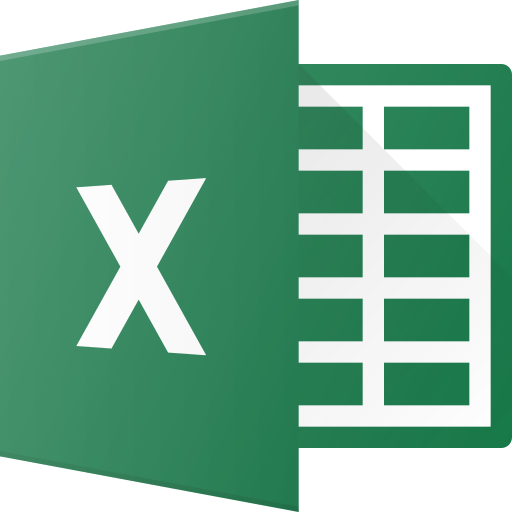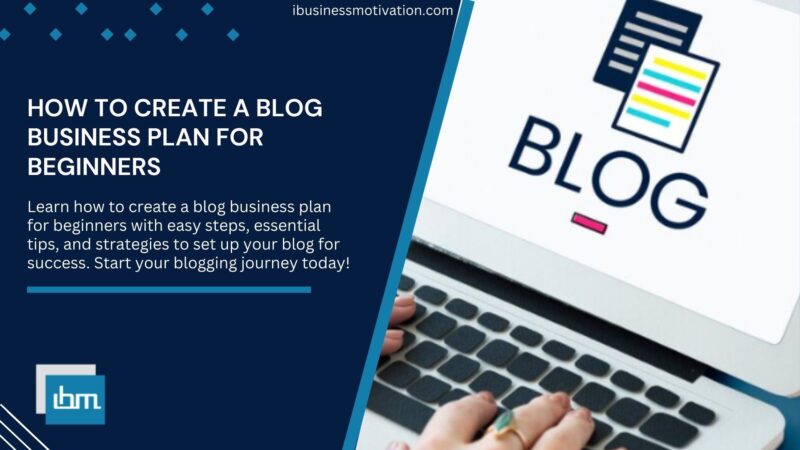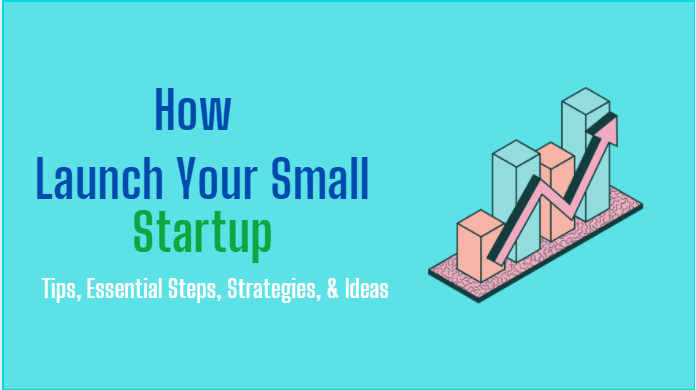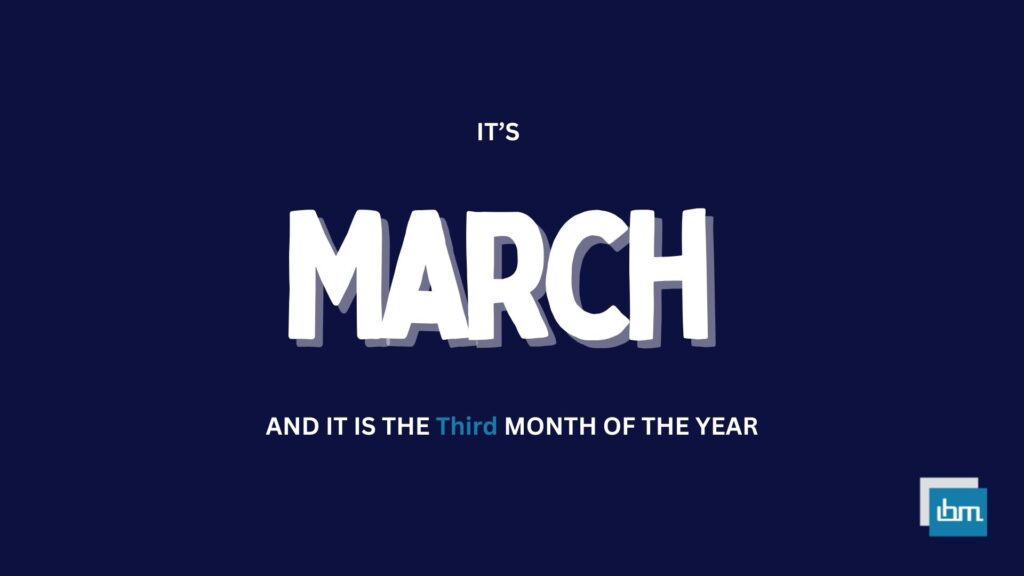Reviewed by: Jayprakash Prajapati | Last updated on October, 1, 2025
How to Create a Blog Business Plan for Beginners. Starting a blog can be one of the most fulfilling ventures of your life. It’s not just about sharing your thoughts or experiences; it’s about building a brand, connecting with like-minded individuals, and potentially earning an income.
But before diving headfirst into the world of blogging, it’s essential to lay a solid foundation by crafting a blog business plan. This article aims to guide you through creating a comprehensive and effective blog business plan tailored for beginners in 2025.
How to Create a Blog Business Plan for Beginners.
In this article, you’ll discover the step-by-step process of creating a blog business plan designed specifically for beginners. We’ll cover everything from choosing your niche and identifying your target audience to developing a content strategy and planning your monetization methods.
Whether you’re starting a blog as a hobby or aiming to turn it into a profitable venture, this guide will provide you with the tools and insights you need to succeed.
It’s all about laying a solid foundation, setting achievable goals, and building a blog that truly resonates with your audience. Let’s dive in and bring your blogging vision to life!
Why You Need a Blog Business Plan.
You may wonder why you need a blog business plan when you can start blogging on a whim. Here’s the thing: a plan gives you direction.
It outlines your goals, strategies, target audience, and more. Without a clear roadmap, you might find yourself wandering aimlessly, leading to frustration and eventual burnout.
A blog business plan serves several key purposes:
- Clarity of Vision: It helps you articulate what you want your blog to achieve.
- Strategic Direction: It provides a step-by-step plan to reach your goals.
- Resource Allocation: It helps you identify what resources (time, money, skills) you will need.
- Performance Tracking: It allows you to measure your progress and make adjustments as needed.
Connecting Emotionally with Your Vision.
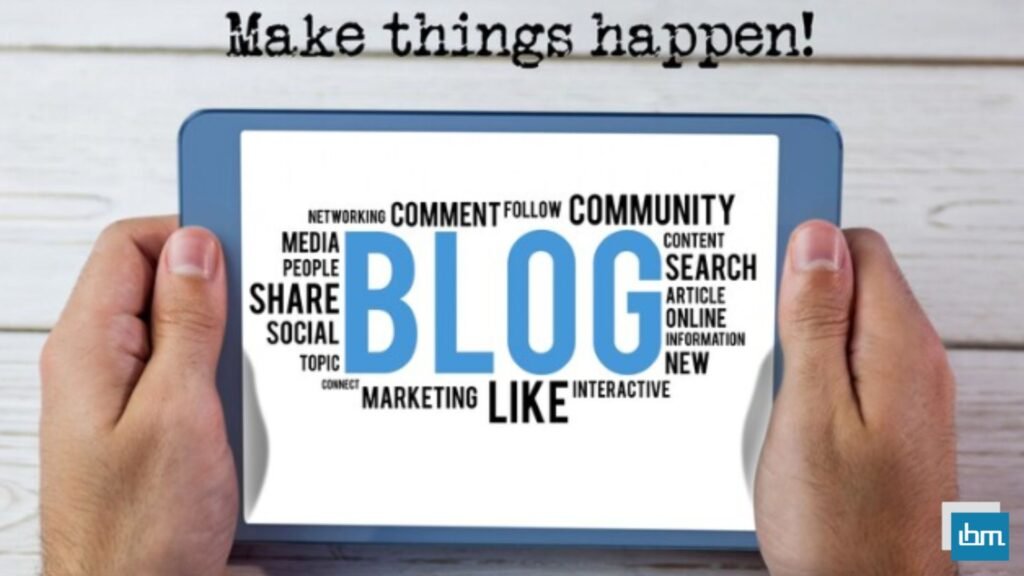
When you decide to start a blog, it’s easy to get caught up in the technical details—choosing a platform, designing your site, or planning your content strategy. But there’s something much deeper at the heart of blogging: your vision.
This is the emotional core of your blog, the “why” that fuels everything you do. It’s the reason you’ll stay up late writing posts or spend hours engaging with your readers. Connecting emotionally with your vision means tapping into your true passion and purpose for blogging.
Ask yourself, why do you want to start this blog? Is it to share your story? Inspire others? Build a community around your interests? Your vision should feel personal, almost like an extension of who you are. It’s the driving force that will guide you through both the highs and the lows of blogging.
But it’s not just about you; it’s about the people you’re trying to reach. Think about your audience—what do they need? What challenges are they facing, and how can your blog help them? By aligning your vision with the needs of your readers, you create a powerful connection. This isn’t just about posting content; it’s about forming genuine relationships with people who see value in what you have to say.
When your blog’s vision resonates with both your passion and your audience’s needs, it becomes more than a platform; it becomes a space for authentic connection and impact.
The Create a Blog Business Plan:
Creating a blog business plan involves several Key Elements. Below, we will delve into each section in detail.
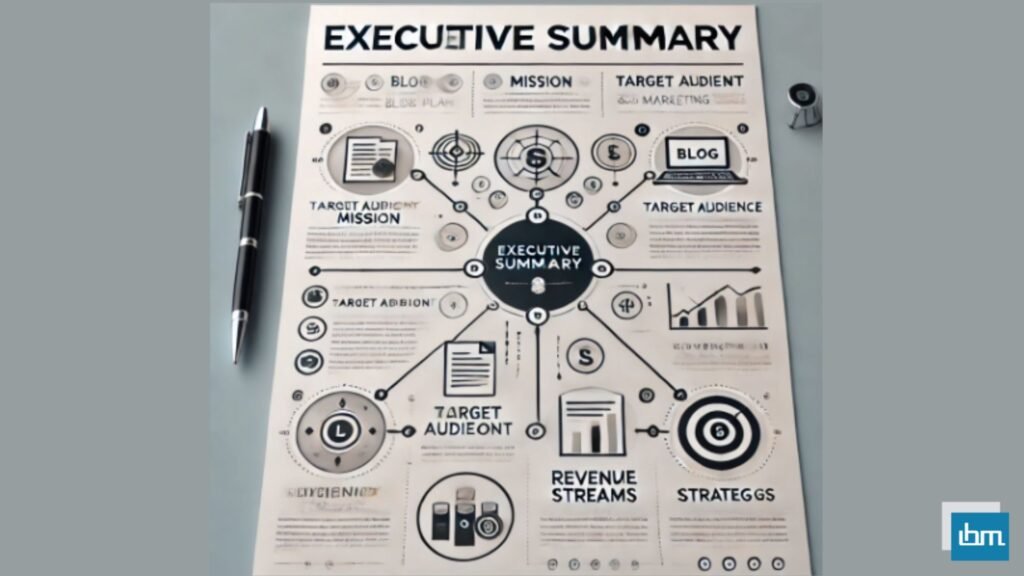
1. Executive Summary.
The executive summary is a brief overview of your blog business plan. Although it appears at the beginning of your plan, it’s often best to write it last. This section should summarize the main points of your plan, including your blog’s mission, target audience, revenue streams, and marketing strategies.
Tips for Writing an Effective Executive Summary:
- Be Concise: Aim for clarity without unnecessary jargon.
- Highlight Key Points: Focus on the most critical aspects of your plan.
- Inspire Interest: Make it engaging to encourage readers to explore the rest of your plan.
2. Niche Selection.
Choosing a niche is one of the most important steps in your blogging journey. A niche defines your blog’s focus, audience, and content. Consider the following factors when selecting your niche:
- Passion: Choose a topic that excites you. Your enthusiasm will shine through your content, making it more engaging for readers.
- Market Demand: Research trending topics in your potential niche. Use tools like Google Trends, Ahrefs, or SEMrush to gauge interest levels.
- Competition: Assess the competition in your niche. While high competition might indicate popularity, it can also make it harder for you to stand out.
How to Find Your Niche:
- Brainstorm: List your interests, skills, and experiences.
- Research: Look for gaps in the market where your unique voice can shine.
- Test: Consider starting with a broader niche and refining it as you gain more insights.
3. Identifying Your Target Audience.
Understanding your target audience is crucial for creating relevant and engaging content. A well-defined audience helps you tailor your messaging and marketing efforts.
Steps to Identify Your Target Audience:
- Create Audience Personas: Develop detailed profiles of your ideal readers, including demographics, interests, and pain points.
- Conduct Surveys: Use social media platforms or email newsletters to gather information about your audience’s preferences.
- Analyze Competitors: Look at your competitors’ audience engagement to gain insights.
4. Setting Clear Goals.
What do you want to achieve with your blog? Setting clear, measurable goals is essential for maintaining focus and motivation.
Types of Goals to Consider:
- Traffic Goals: Set targets for monthly visitors and page views.
- Engagement Goals: Aim for specific levels of social media interactions or comments on your posts.
- Monetization Goals: Define your revenue targets, such as affiliate marketing income or ad revenue.
SMART Goals Framework:
Use the SMART criteria to ensure your goals are Specific, Measurable, Achievable, Relevant, and Time-bound. For example, instead of saying, “I want more traffic,” you could say, “I want to increase my monthly traffic to 5,000 visitors by the end of six months.”
5. Content Strategy.
Content is the backbone of your blog. A well-planned content strategy will keep your audience engaged and coming back for more.
Key Components of a Content Strategy:
- Content Types: Decide what type of content you want to produce—blog posts, videos, podcasts, or infographics.
- Publishing Frequency: Establish a consistent posting schedule that fits your lifestyle and ensures quality.
- Content Promotion: Plan how you will promote your content through social media, email marketing, and SEO.
6. Monetization Strategy.
While many bloggers start for passion, monetizing your blog can make it a sustainable business. Consider various revenue streams:
- Affiliate Marketing: Promote products related to your niche and earn a commission for each sale made through your referral link.
- Sponsored Posts: Collaborate with brands for paid content.
- Selling Products or Services: Create and sell digital products, courses, or coaching services.
Tips for Effective Monetization:
- Maintain Authenticity: Only promote products you genuinely believe in to maintain trust with your audience.
- Diversify Income Streams: Don’t rely on a single income source; explore multiple avenues for revenue.
7. Marketing and Promotion Plan.
Your blog’s success largely depends on how well you promote it. An effective marketing strategy is essential to reach your target audience and grow your readership.
Marketing Channels to Consider:
- Social Media: Leverage platforms like Instagram, Pinterest, and Twitter to share your content and engage with your audience.
- Email Marketing: Build an email list to maintain a direct line of communication with your readers.
- SEO Optimization: Optimize your blog for search engines to increase organic traffic.
SEO Best Practices for 2025:
- Keyword Research: Use long-tail keywords to target specific search queries. Tools like Ubersuggest and Google Keyword Planner can be helpful.
- On-Page SEO: Optimize your content by including keywords in headings, meta descriptions, and image alt text.
- Quality Content: Prioritize creating valuable content that meets your audience’s needs.
8. Performance Metrics.
To understand how well your blog is performing, you need to track key performance metrics. This will help you assess what’s working and what needs improvement.
Essential Metrics to Monitor:
- Traffic Sources: Identify where your traffic is coming from (organic search, social media, referrals).
- User Engagement: Track metrics such as bounce rate, average session duration, and pages per session.
- Conversion Rates: Measure how many visitors take desired actions (e.g., signing up for your email list or making a purchase).
Tools for Tracking Performance:
- Google Analytics: A powerful tool for monitoring website traffic and user behavior.
- Social Media Analytics: Utilize built-in analytics on platforms like Facebook, Instagram, and Twitter to gauge engagement.
9. Financial Planning.
Understanding the financial aspect of your blog is crucial for its sustainability. Create a budget that outlines your expected expenses and potential income.
Key Financial Considerations:
- Startup Costs: Include expenses for domain registration, hosting, design, and marketing.
- Ongoing Costs: Factor in recurring costs such as web hosting, email marketing services, and content creation tools.
- Projected Income: Estimate your income from various revenue streams and set financial goals.
Tips for Effective Financial Planning:
- Keep Detailed Records: Track your income and expenses regularly to maintain a clear financial overview.
- Adjust as Needed: Be prepared to adjust your budget based on actual performance and market conditions.
10. Legal Considerations.
As a blogger, it’s essential to understand the legal implications of your business. This includes copyright laws, privacy policies, and tax obligations.
Legal Aspects to Address:
- Copyright: Ensure you have the rights to use any images or content on your blog.
- Privacy Policy: Create a privacy policy to inform visitors how you collect, use, and protect their data.
- Taxes: Be aware of your tax obligations as a blogger, including potential sales tax on products sold.
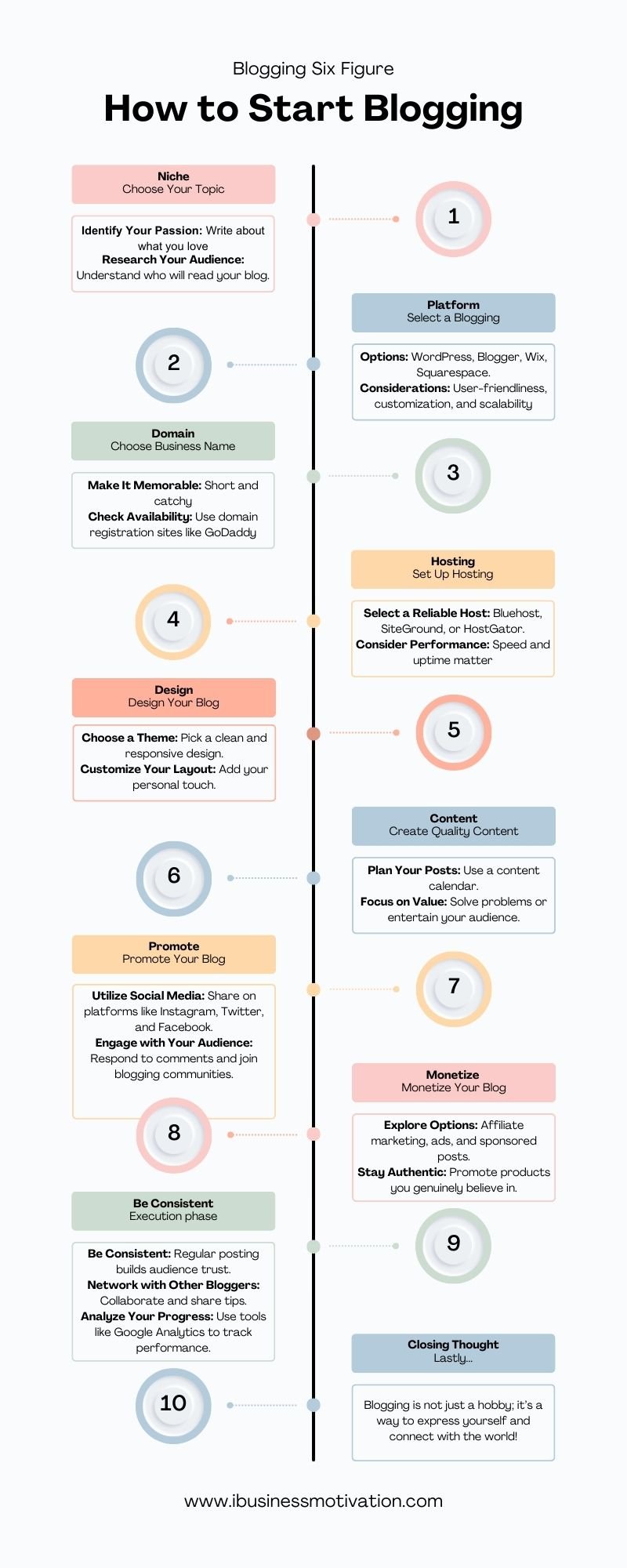
FAQ’s
A blog business plan is a detailed document outlining your blog’s goals, target audience, content strategy, monetization methods, and marketing plans.
While it’s possible to start a blog without a formal plan, having one increases your chances of success by providing direction and clarity.
Consider your passions, market demand, and competition when selecting a niche.
You can monetize your blog through affiliate marketing, sponsored posts, selling products or services, and ad revenue.
Utilize social media, email marketing, and SEO optimization to promote your blog and attract readers.
Use tools like Google Analytics and social media analytics to monitor key performance metrics.
Be mindful of copyright laws.
Conclusion for Create a Blog Business Plan.
Creating a blog business plan in 2025 is not just a smart step; it’s a transformative one. By carefully considering each component of your plan, you’re not only setting yourself up for success but also ensuring that your blog aligns with your passions and aspirations. Remember, this journey is uniquely yours, filled with opportunities for growth and connection.
As you embark on this adventure, keep in mind that challenges will arise. There may be moments of doubt when the numbers don’t add up or when your audience doesn’t respond as you hoped. It’s during these times that your business plan will serve as your compass, guiding you back to your goals and reminding you why you started this journey in the first place.
Embrace the Journey.
Starting a blog is more than just a business; it’s a personal journey that allows you to express yourself and connect with others who share your interests. It’s about building a community around shared passions, offering insights, and creating value for your readers. Embrace this journey with an open heart and mind, and you’ll find that the rewards go far beyond financial success.
Stay Adaptable.
In the ever-evolving digital landscape, flexibility is crucial. As trends shift and your audience grows, be ready to adjust your strategies and refine your content. Your blog is a living entity, and just like any relationship, it needs nurturing and care. Stay attuned to your audience’s needs and interests; this will not only strengthen your connection but also keep your content relevant.
Build Relationships.
Your blog is a gateway to building meaningful relationships—not just with your readers but also with fellow bloggers and industry professionals. Engage with your audience through comments, emails, and social media interactions. Collaborate with other bloggers for guest posts or joint ventures. These connections can offer invaluable support, insights, and opportunities that enrich your blogging experience.
Celebrate Your Achievements.
Take the time to celebrate your milestones, whether it’s hitting a traffic goal, receiving positive feedback, or simply completing a challenging post. These moments of recognition can fuel your motivation and remind you of the progress you’ve made. Blogging is a marathon, not a sprint, so savor the journey and acknowledge your hard work along the way.
Remember Your ‘Why’.
As you craft your blog business plan and begin implementing it, always return to your ‘why.’ Why did you start this blog? What impact do you want to have on your readers? Keeping your purpose front and center will help you stay focused and passionate about your work, even during tough times.
Your Blogging Adventure Awaits.
The process of creating a blog business plan is not merely a checklist to tick off. It’s an opportunity for self-discovery and expression. It’s about harnessing your creativity, sharing your insights, and forming connections with others who resonate with your message.
So take a deep breath, trust the process, and step boldly into your blogging adventure. You have the tools, the plan, and the passion to make it happen. Here’s to your success, creativity, and the many stories waiting to be told on your blog. Cheers to your new beginnings! 🥂
Further reading on IBusinessMotivation.com: If you want to earn Blogging Business? Check out my favorite articles below.
Complete Blogging Ultimate Guide for Startups. I would like to put your facts before I start.
Make Money Blogging can be done with the help of a laptop and internet connection from any one corner of the world if you want.
Effective Things I Wish I Knew Before Starting My Blog. Starting My blog can be one of the most fulfilling and transformative experiences of your life.
Best Tasks to Outsource As a Beginner Blogger. with Starting a blog in 2025 is an exciting journey filled with creativity, passion, and the opportunity to build a thriving online presence.
Best Web Hosting Services. Are you looking for good web hosting? Host Gatorferent levels of features, ease of use, price, and loading time matter so much.
